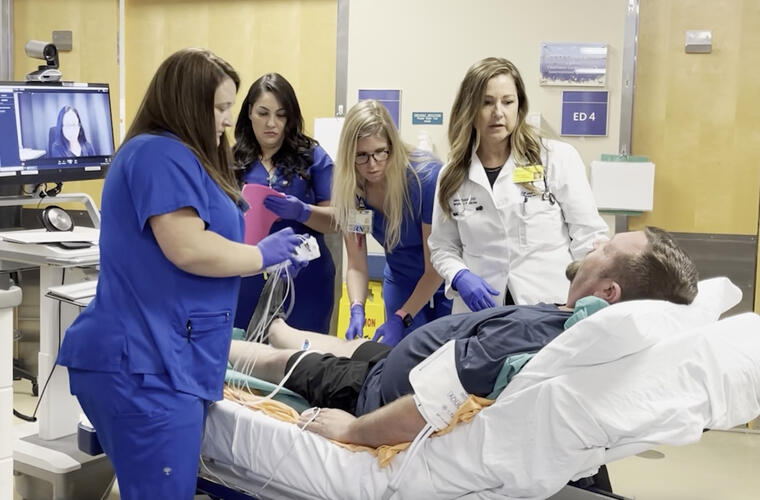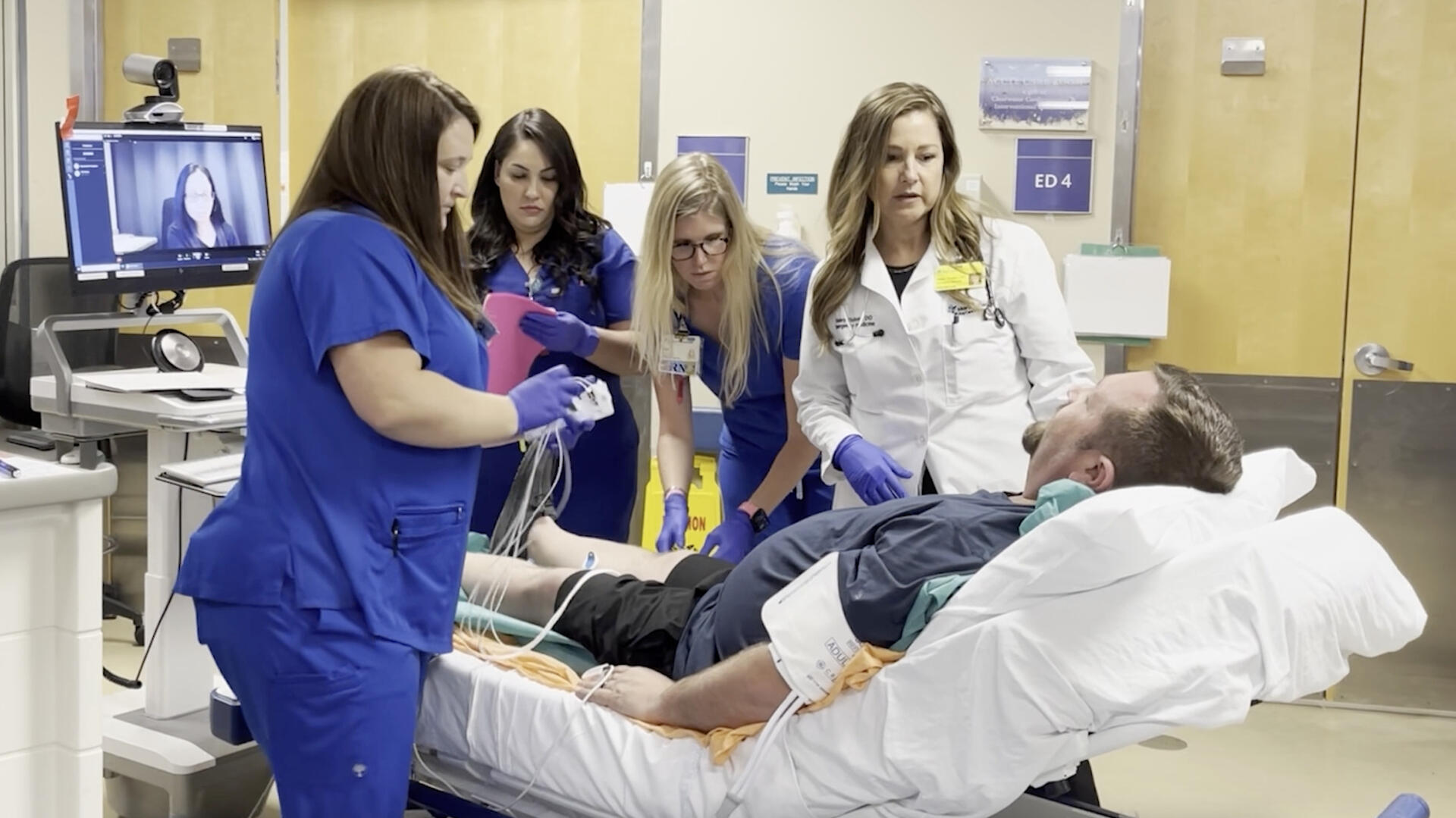Morton Plant Hospital, Pinellas County Fire Rescue and Sunstar Paramedics Create Stroke Education Video
Morton Plant Hospital (MPH) has teamed up with Pinellas County Fire Rescue and Sunstar Paramedics to create an educational training video that teaches paramedics the hospital’s stroke alert process for once a stroke patient is transported to the hospital.
Lib Greco, an ER clinical nurse at MPH, works on the hospital’s Stroke STEMI program and emphasized why communication between hospital staff and responders is key.
“Sometimes we’re not able to see the patient’s family as soon as they get here because we’re moving so quickly,” Greco said. “If the paramedics are able to give us a good report, it gives us the best opportunity to know exactly what happened with the patient, treat them in the best time possible and give them the best results.”
According to the American Stroke Association (ASA), a division of the American Heart Association, stroke is the No. 5 cause of death and a leading cause of disability in the United States. A stroke occurs when a blood vessel that carries oxygen and nutrients to the brain is either blocked by a clot (called an ischemic stroke) or a blood vessel bursts or ruptures preventing blood flow to the brain (called a hemorrhagic stroke). When that happens, part of the brain and its cells die because it cannot get the blood and oxygen it needs. A transient ischemic attack (TIA), or “mini stroke,” is caused by a temporary clot.
It is often said that “time is brain” when it comes to a stroke, as more than two million brain cells die per minute. When someone shows signs and symptoms of a stroke, they require immediate medical attention. Once the patient arrives at the hospital, a doctor will gather information, make a diagnosis and begin a course of treatment depending on the cause of the stroke.

“This training is important because it gives EMS and Fire Rescue the opportunity to be able to see our side of things. Usually after they drop off the patient and give us a report, they don't really know what goes on behind the scenes,” added Greco.
The ASA reports that more than 795,000 people in the United States have a stroke every year. If you suspect that you or someone you know is having a stroke, BE FAST, and call 911. BE FAST stands for:
- Balance – Sudden loss of balance or coordination.
- Eyes – Sudden trouble seeing out of one or both eyes.
- Face – Sudden drooping on one side of the face.
- Arm – Sudden weakness in one arm or leg.
- Speech – Sudden trouble with speech or understanding.
- Time – Sudden onset of a terrible headache and time to call 911.
Learn more about B.E. F.A.S.T. through BayCare HealthChat’s podcast in English and Spanish.
Providing the paramedics with the most accurate information about the patient will help the hospital staff intervene quickly and move forward with treatment. Key information to provide can include when the last time was the individual appeared normal, family history, current medication, recent surgeries, and any medical conditions that may assist in the treatment plan, including but not be limited to, high blood pressure or irregular heartbeat (also known as AFib).
All of BayCare’s 13 Stroke Centers are certified by DNV, an international accrediting body that emphasizes clinical best practices along with a disciplined management system. Morton Plant Hospital, certified as a Comprehensive Stroke Center, offers immediate and innovative treatment for stroke patients, as well as a comprehensive program to assess the causes of a stroke and recommend a personalized treatment plan. Treatment plans often combine medication with surgical procedures, including new minimally invasive procedures that require specially trained and certified physicians and nurses.
“This partnership with local paramedics is very unique,” Greco said. “When we work together, it is better for the patient."
For more information about BayCare’s services for stroke, call 727-461-8635 or visit BayCareStroke.org.

